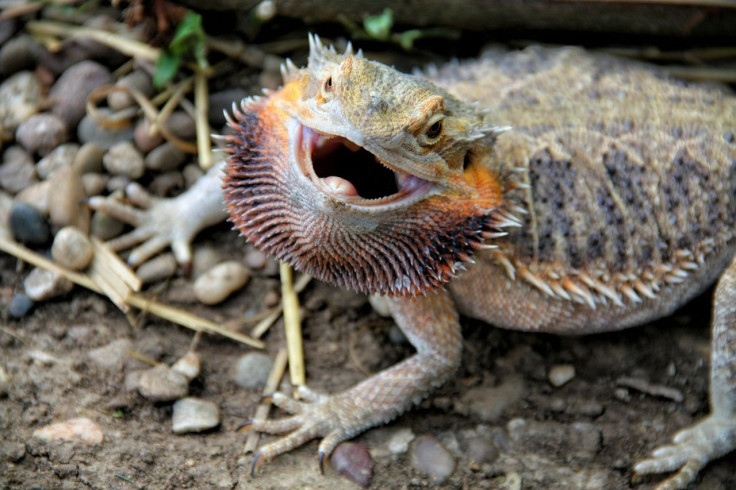Will Climate Change Make Animals Stupid? Scientists Show Heat’s Effect On Intelligence

As Earth gets hotter, the climate change might affect animals in unpredictable ways. It seems obvious that temperature increases in a species’ environment will force those creatures to adapt, either moving their range or staying in the same place and changing the way they do business. But scientists are now saying there could be consequences we cannot observe as easily, like global warming making the animals less intelligent.
Bearded dragons are one example. Going off recent research that showed the environment where a lizard’s egg is incubated affects how the brain forms and how well it works, a team aimed to test the cognitive function of bearded dragons that developed under warmer conditions. According to a study in the journal Royal Society Open Science, they focused specifically on the lizards’ ability to learn new information from others of their kind, by watching and copying them.
It turned out that when these bearded dragons’ eggs were incubated in a warmer environment, they were born a little slow.
“Incubation temperature did not influence the gaze following ability of the bearded dragons; however, lizards incubated at colder temperatures were quicker at learning a social task and faster at completing that task,” the study says. And while this decreased social intelligence was not permanent, it was not short-term either, lingering “long into adulthood.”
The difference in incubation temperature that caused the lower intelligence was not extreme — the colder group of six eggs was kept at about 80 degrees Fahrenheit while the warmer group of seven eggs was held at 86 degrees.
The animals, a roughly even number of each sex in both groups, were tested once they reached sexual maturity. They were observed to see if they followed the gaze of a computer simulation of another bearded dragon; and if they could watch a video of a bearded dragon opening a sliding door with its foot or head to get at the food on the other side, then copy that behavior with a sliding door of their own. Lizards incubated at colder temperatures performed better at these tasks.
“Environmental change is increasingly impacting habitats worldwide, creating novel challenges for the animals living there,” the study explains. “Genetic adaptation can be slow. … Cognitive abilities are likely to play a major role in behavioral adaptation as they influence how an animal perceives, stores and uses information from the surrounding environment.”
Bearded dragons are yellow or tan and get their name from a territorial behavior in which they puff out the skin around their throat, making it look like a beard. They are from Australia and can grow to be a couple feet long.
© Copyright IBTimes 2025. All rights reserved.





















